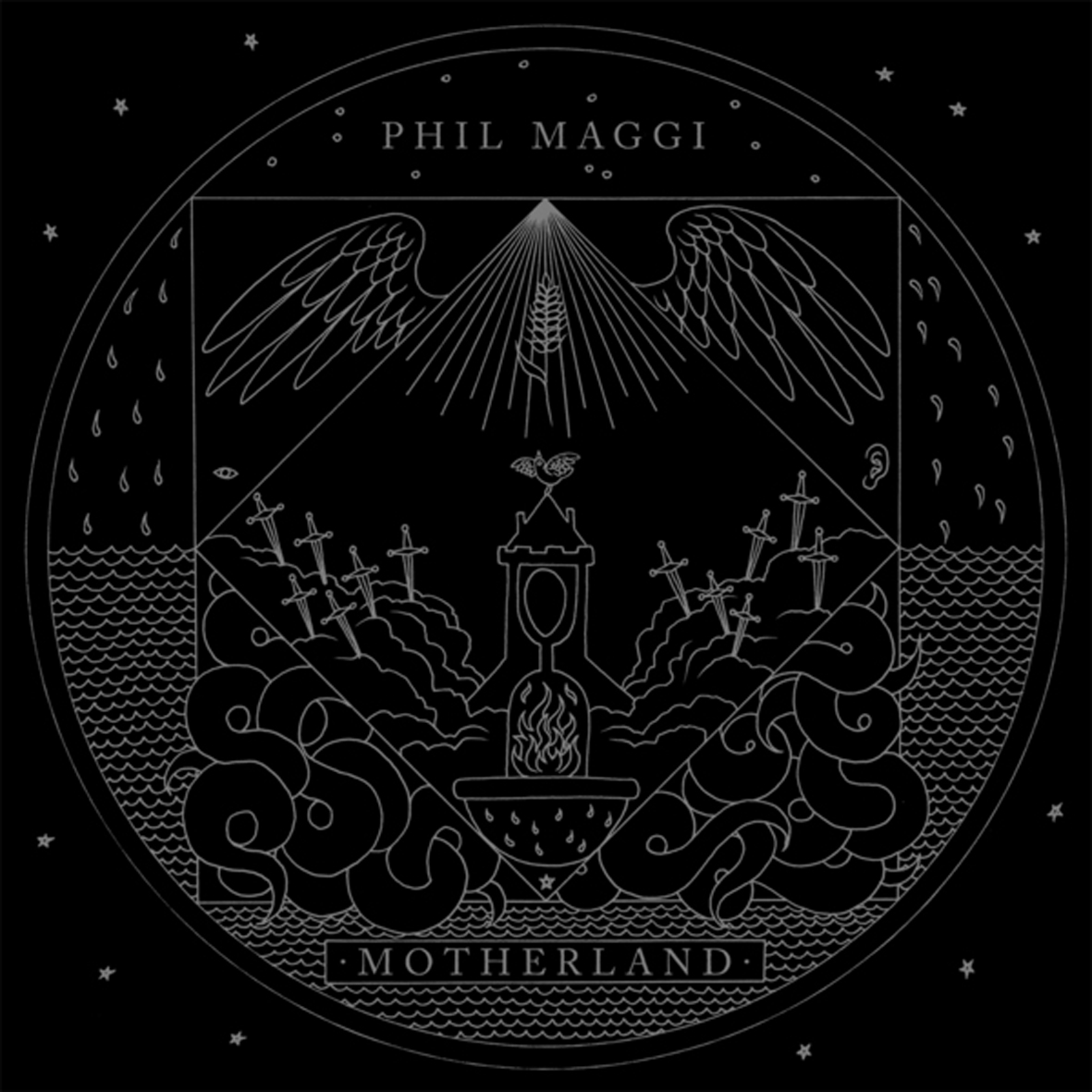Phil Maggi, "Motherland"
 During their prime, Zoviet France pioneered a strain of music variously known as either ethno-ambient or sci-fi tribal, but they quickly moved on and nobody since has quite been able to quite fill the resultant void for me.  Others have certainly tried, but they usually have an "overwrought" or "overproduced" feel that dispels whatever illusion they are trying to evoke.  Consequently, I was absolutely delighted to find out about Phil Maggi and his eerie, mesmerizing, and loop-based sound collages.  Maggi's aesthetic is exactly what I was looking for, particularly on 2011's Ghost Love.  His similarly fine (if not even better) new album is a travelogue of sorts, culled from field recordings and snatches of traditional music accumulated during a 2011 trip through Umbria, Italy.
During their prime, Zoviet France pioneered a strain of music variously known as either ethno-ambient or sci-fi tribal, but they quickly moved on and nobody since has quite been able to quite fill the resultant void for me.  Others have certainly tried, but they usually have an "overwrought" or "overproduced" feel that dispels whatever illusion they are trying to evoke.  Consequently, I was absolutely delighted to find out about Phil Maggi and his eerie, mesmerizing, and loop-based sound collages.  Maggi's aesthetic is exactly what I was looking for, particularly on 2011's Ghost Love.  His similarly fine (if not even better) new album is a travelogue of sorts, culled from field recordings and snatches of traditional music accumulated during a 2011 trip through Umbria, Italy.
Motherland begins in a very perverse and deceptive way, as someone (Maggi?) happily strums away at a ukulele while nearby birds chirp and burble, painting quite a bucolic picture indeed.  Very quickly, however, that ukulele disappears to make way for slowly massing, densely buzzing, and quite menacing synth drones.  That does not seem to faze the birds much, but it certainly changed the tone of the album in a big way for me.  While that brief synth piece ("Epona Ballade") is not representative of the entire album in any specific sense, it is a fine example of what Maggi excels at: taking rather innocent field recordings and transforming them into something much darker and stranger with a few simple tweaks.  There is a definite naturalness and ego-less-ness to this deeply unnatural music, as Phil does not use the field recordings as building blocks for his compositions; rather, he uses his compositional talents to bring out the most hallucinatory and nightmarish aspects of the recordings themselves.  Admittedly, these brief pieces never quite evolve into anything larger before they end, but they always dissolve into something new and similarly bizarre long before they begin to seem tiresome or one-note.
Throughout Motherland, Maggi casts quite a wide net for his raw material and finds some very effective and ingenious ways to juxtapose disparate recordings.  The best moments tend to be the most hellish ones, however, which seems to be a talent that Phil truly relishes.  I have no idea if he uses actual tape, but most pieces have a very "tape loop" aesthetic of obsessive, relentless repetition and snowballing lunacy.  One such highlight in that vein is "Shine/Pyre," which marries a diseased-sounding horn snippet with a chorus of gibbering, chattering voices to evoke a cacophonous march of the damned.  The following "Congratulator" also has a curiously "medieval parade"-like feel, albeit a far more majestic one than its predecessor.  It is still far beyond the pale, however, as it sounds like the cavalcade in question is entirely subterranean and experienced only as a distant echo.  Most of the other pieces are considerably less triumphal though, like the jabbering and queasy reverie of "Golden Age" or the clattering, buzzing, and stuttering cacophony of "Roma."  Though there are a few appealing divergences mood-wise, Phil's default setting generally seems to be "simmering horror" when he is not in "sinister parade" mode.  I am a fan of both.
If Motherland has a downside, it is only that Maggi does not develop his best ideas further than he does.  For example, the lushly gorgeous "Riots For The Sun" is basically an entire William Basinski album condensed into under three minutes, while the album's rare forays into less inspired ambient gloom are given equal time.  As an entire album, however, it works beautifully–not every song is a masterpiece, but the pieces are all short enough to maintain brisk momentum that draws me deeper and deeper into Maggi’s deeply warped and kaleidoscopic world.  This is an album of constant transition, motion, and cumulative power.  As far as I am concerned, Motherland is a huge success on at least two levels.  As sound art, it is a vibrant, evocative, distinctive, and masterfully constructed whole.  More impressive still, however, is Maggi's power as an illusionist: much like Natural Snow Buildings at their best, Phil is able to erase any sense of either the present or the artist's presence to yield something that feels like a recording from a completely different time and place.  I love this album.
 



